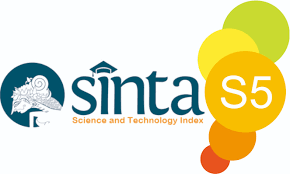Penerapan Terapi Realitas Teknik WDEP untuk Meningkatkan Penerimaan Diri WBS Panti Bina Insan Bangun Daya
Abstract
The East Jakarta Bina Insan Bangun Daya II Social Institution itself accommodates various characteristics of people
with social welfare problems (PMKS) that disturb public order. Some of the WBS in the orphanage are
socioeconomically vulnerable women. Most of the WBS already have children, have been abandoned or divorced from
their husbands, and have uncertain jobs, so they end up on the street. Brought to an orphanage for training. However,
during WBS coaching, they showed negative behaviours such as being emotionally unstable, irresponsible, difficult
to accept circumstances, blaming themselves, and being alone. Calhoun and Acocella (1995) explain that selfacceptance
is related to a positive self-concept, and with a positive self-concept, a person can accept and understand
facts that are so different from himself. Self-acceptance is the ability to accept everything that is in oneself, both the
strengths and weaknesses that are possessed. To increase self-acceptance in WBS assisted by Reality Therapy with
the WDEP Technique, which was carried out in 10 sessions. The results of measuring self-acceptance used a selfacceptance
scale based on Sheerer's theory (1957) in the form of a pre-test and post-test, resulting in findings of a
change in self-acceptance in the WBS of 43% from the medium to high category.



